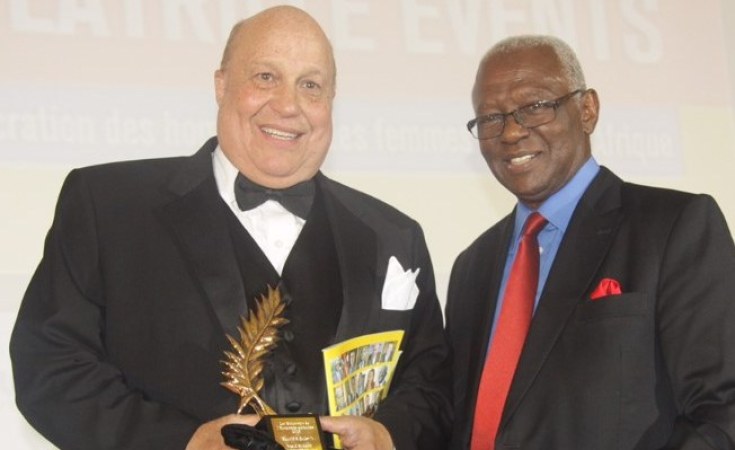New Orleans — The Greek mythological Titan of Forethought, Prometheus, dared to disobey Zeus' wishes by sharing fire and heat with humanity. His punishment was to be shackled to the Caucasus Mountains (The derivation of Caucasian comes from the people of the Caucasus Mountains.).
This humane act for humankind led to eternal condemnation. Each day, the eagles ate Prometheus's organs, but because he was a Titan (i.e. god), the organs grew back. Prometheus endured this daily fate until Hercules broke his chains.
Babacar Ndiaye, who passed away in Dakar yesterday, lived the life of Prometheus. He did what he knew was right and paid the price many times over.
Many people that he helped throughout his life hurt him and hurt him dearly. I personally saw him reconcile with each one of those people, even though just one of those blows could have been mortal.
Babacar was a religious man who knew the Koran as well as the Old and New Testaments and understood that we are all One. He recognized that Ishmael, Abraham's first son, was the forbearer of Islam. He knew the Old Testament teachings that Noah son Ham's descendants are Black, cursed to always be the servant of servants (slaves). In the New Testament, Babacar liked to point out that two men carried the cross to Calvary, Jesus and Simon of Cyrene, a black man.
God and history created Babacar, who was a compilation of Prometheus, Ishmael, Ham and Simon of Cyrene.
Bababcar is recognized for his decade (1985-1995) as president of the African Development Bank (AfDB). What is lesser known is that he orchestrated the quadrupling of the capital of that Bank and that he secured the first AAA rating for an African institution or sovereign country. He also was instrumental in creating Shelter Afrique, the African Export-Import Bank and the African Business Roundtable.
One little known anecdote is that - when the superpowers agreed in 1991 that the next Secretary General of the United Nations should be an African - Babacar Ndiaye was next in line for the position, had Boutros Boutros-Ghali not prevailed following a stalemate in the voting. Another unknown gem is that Babacar was asked by Libya's Colonel Gaddafi to deliver his wish to Washington to reconcile with the United States.
Perhaps most important was Babacar's behind-the-scenes contribution to ending apartheid. In 1985, the year Babacar became AfDB President, Hughlyn Fierce, senior executive vice president of Chase Bank in New York, won approval for the Bank to refuse to renew the debt of South Africa. This decision immediately put the white government in default, forcing the closure of the foreign currency exchange window and the Johannesburg Stock Exchange.
Less than 60 days later, President P.W. Botha gave his Rubicon speech in Durban and spoke of the 'new' South Africa. Within a matter of weeks, Nelson Mandela was moved from prison to a halfway house, and the lengthy negotiations that led to the country's first non-racial elections in 1994 were underway.
Babacar quietly supported Chase Bank in extraordinary ways, and It was the cooperation of these two men of color - Fierce and Ndiaye - which helped to bring about this remarkable change.
Throughout his career, Babacar handled tens of billions of dollars. Yet he did not die a wealthy man in monetary terms. What he accomplished was to do his job extraordinarily well.
Now that his earthly chains have been broken, we need not cry for Babacar. We should, however, mourn the fact that Africa has lost a great titan to whom we all are indebted..
Ambassador Harold E. Doley, Jr. (Ret.) was the first U.S. Executive Director to the African Development Bank and Fund.


